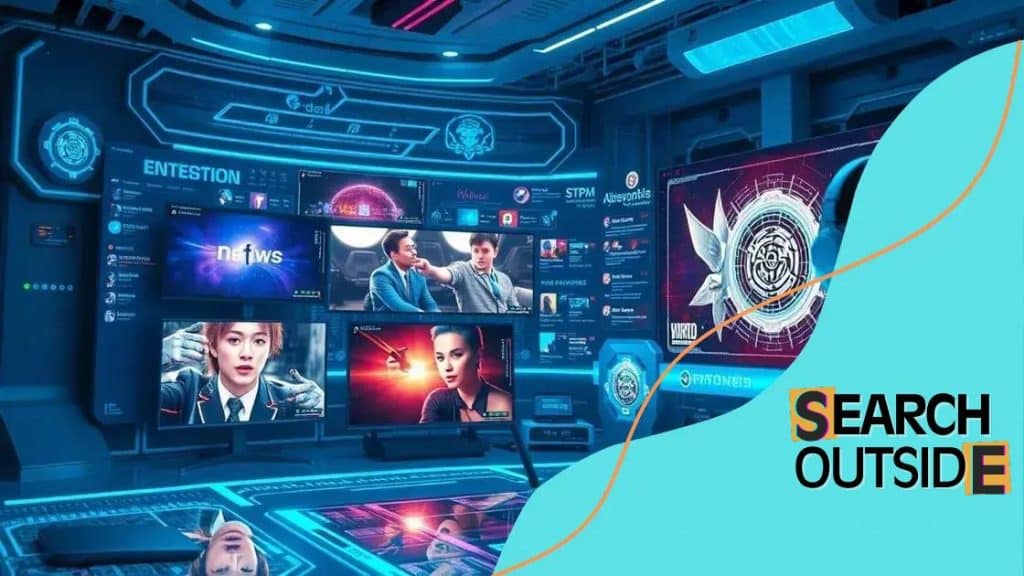The impact of artificial intelligence on digital media and entertainment

The impact of artificial intelligence on digital media and entertainment includes enhanced content creation, improved audience engagement, and ethical challenges, such as bias and intellectual property rights.
The impact of artificial intelligence on digital media and entertainment is reshaping how we consume and create content. Ever wondered how AI influences your favorite shows and music? Let’s dive deeper into this fascinating intersection.
Understanding artificial intelligence in entertainment
Understanding artificial intelligence in entertainment opens up exciting possibilities. AI technologies are not just buzzwords; they are transforming how we create and consume media. From movies to video games, AI plays a crucial role.
What is Artificial Intelligence?
In simple terms, artificial intelligence refers to machines that can perform tasks normally requiring human intelligence. This includes understanding natural language, recognizing patterns, and making decisions. In the entertainment industry, AI helps generate content, analyze audience preferences, and enhance user engagement.
Applications of AI in Entertainment
AI has a wide array of applications in entertainment. Here are some key areas:
- Content Creation: AI can write scripts, compose music, and even edit videos.
- Personalized Recommendations: Streaming services use AI algorithms to suggest shows based on your viewing history.
- Virtual Reality Experiences: AI enhances virtual reality, making it more immersive and interactive.
- Audience Engagement: AI analyzes social media data to gauge audience reactions in real-time.
The rapid integration of AI technologies is not just about efficiency; it’s also about creativity. For instance, AI-generated music can introduce new sounds and genres. Similarly, scriptwriting tools powered by AI can help brainstorm original story ideas, pushing the boundaries of traditional storytelling.
As these technologies evolve, the creative possibilities expand. Filmmakers can leverage AI to visualize scenes, allowing for more profound storytelling techniques. Furthermore, AI tools can help gaming companies create more dynamic characters that adapt to player behaviors, enhancing the overall experience.
Understanding the impact of AI on entertainment opens doors to new ways of thinking about content. By merging technology with creativity, the industry is redefining what it means to engage audiences and tell stories.
Transformative effects of AI on content creation
The transformative effects of AI on content creation are vast and exciting. AI tools are revolutionizing how we generate and refine creative work. This shift allows creators to focus more on innovation rather than repetitive tasks.
Automation in Content Creation
Artificial intelligence automates many aspects of the content development process. For example, AI can assist in writing articles, generating music, or creating visuals. This frees creators to spend more time crafting their unique voice.
Enhancing Creativity
A surprising benefit of AI is how it enhances human creativity. With AI-assisted tools, artists can explore new styles and genres. For instance, AI algorithms can analyze existing music to inspire original compositions. Similarly, movie scripts can be improved using AI for plot analysis and character development.
- Writing: AI can generate drafts or suggest edits, improving efficiency.
- Visual Arts: Tools can create stunning graphics or suggest color palettes based on trends.
- Music Production: AI can compose tunes, providing a fresh base for musicians to build upon.
Moreover, collaborative tools enable multiple artists to work together seamlessly, even remotely. These advancements create diverse opportunities, leading to unique combinations of art forms.
As we see more integration of AI in content creation, the potential for innovative storytelling expands. Films can incorporate AI-generated scenes that enhance viewer engagement. Video games use AI to create dynamic narratives where the story adapts to player decisions. This interactive aspect encourages a deeper connection with the work.
The impact of AI on content creation is significant, enabling producers to push boundaries and explore uncharted territories in art and media.
How AI is changing audience engagement strategies

How AI is changing audience engagement strategies is a pivotal topic in today’s digital landscape. AI tools provide unique insights into audience behavior, helping creators connect more effectively with their viewers.
Personalized Experiences
Artificial intelligence enables platforms to offer personalized experiences. By analyzing user data, AI can tailor content recommendations based on individual preferences. This means users are more likely to discover content that resonates with them.
Real-Time Feedback
Another significant shift is the ability of AI to provide real-time feedback on audience engagement. By monitoring interactions, AI can analyze what viewers like or dislike, allowing creators to adjust content quickly. This dynamic approach helps keep content relevant and engaging.
- Content Recommendations: Platforms use AI to suggest videos, articles, or music that align with user interests.
- Social Media Insights: AI analyzes comments and likes to gauge audience reactions instantly.
- Adaptive Content: AI can create content that evolves based on user interactions, enhancing user engagement.
Through chatbots and virtual assistants, AI also improves communication between creators and their audiences. Users can ask questions or provide feedback at any time, fostering a sense of community. This two-way communication strengthens relationships and keeps audiences invested in the content.
As the integration of AI technologies continues to grow, we will see even deeper connections between creators and their audiences. The future of content will increasingly rely on understanding viewers at a granular level to deliver immersive and targeted experiences.
Future trends of AI in digital media
The future trends of AI in digital media are shaping how we interact with content daily. As technology advances, AI is becoming more integrated into various forms of media, transforming our consumption experiences.
Enhanced Personalization
One major trend is enhanced personalization. AI algorithms analyze user data to create tailored content experiences. This could mean receiving movie recommendations that align with your taste or music playlists customized just for you.
Content Generation
Another exciting trend is in content generation. AI tools are now capable of creating everything from written articles to video content. For instance, AI can write simple news summaries or even generate graphics for social media. This not only saves time but allows creators to focus on more complex tasks.
- Deep Learning: Using deep learning techniques, AI systems can improve over time, offering richer and more accurate content suggestions.
- Automated Editing: AI can assist in editing videos and audio, streamlining the production process.
- Interactive Storytelling: AI enables the creation of interactive narratives, where stories change based on audience choices.
Moreover, AI is influencing the way we consume media. Virtual reality (VR) and augmented reality (AR) powered by AI are becoming more common. These technologies enable immersive experiences that were once only possible in science fiction. Imagine films that adjust their storylines based on audience reactions or games that adapt to your playing style in real-time.
As AI in digital media continues to evolve, we can expect even greater advancements. From personalized advertising to AI-driven marketing strategies, the future looks bright for both consumers and content creators.
Challenges and ethical considerations of AI in entertainment
The challenges and ethical considerations of AI in entertainment are increasingly important as technology evolves. While AI offers amazing opportunities for creativity, it also raises questions about fairness, privacy, and accountability.
Bias in AI Algorithms
One major challenge is bias in AI algorithms. These algorithms learn from existing data, which may include biases. If not addressed, this can lead to unfair representation in movies, music, and other media. For instance, AI-generated content might favor certain demographics, perpetuating stereotypes rather than breaking them.
Intellectual Property Issues
Another concern involves intellectual property rights. As AI systems create original content, questions arise about ownership. Who owns a song or a script generated by an AI? There needs to be clear guidelines to protect both creators and technology.
- Data Privacy: Collecting user data to improve AI systems raises concerns about privacy. Users need to trust that their data is secure and used responsibly.
- Job Displacement: There are fears that increased use of AI may lead to job losses in creative fields, as machines take over tasks previously handled by humans.
- Transparency: Understanding how AI makes decisions is crucial. Without transparency, audiences may distrust AI-generated content.
Additionally, there is the issue of accountability. When AI systems produce content that is harmful or offensive, determining who is responsible can be complicated. Creators, companies, and users all have roles to play in ensuring that AI is used ethically.
As the industry grows, engaging in discussions about the ethical implications of AI in entertainment becomes vital. Establishing clear guidelines and understanding its challenges can help pave the way for responsible use of this powerful technology.
FAQ – Frequently Asked Questions about AI in Entertainment
How is AI transforming content creation in entertainment?
AI enhances creativity by automating repetitive tasks, allowing creators to focus on developing unique and innovative content.
What are the major ethical concerns related to AI in media?
Key concerns include bias in algorithms, intellectual property rights, and the potential for job displacement in creative industries.
How does AI personalize audience experiences?
AI analyzes user data to provide tailored content recommendations, ensuring viewers receive suggestions that match their preferences.
What role does transparency play in AI-generated content?
Transparency is vital as it builds trust with audiences, ensuring they understand how AI decisions are made and the data used.





